Reflection II: Echoes of a Vanishing China—Between Village and Megacity
Part Two of My Reflection Series on Rural China: Navigating the Clash Between Ambition and Meaning in the Rural-Urban Divide, and the Tension Between Tradition and Modernity.
If you’ve read my last reflection, Falling in Love with Rural China, you’ll know how I ended up immersed in those villages—where I saw a raw, unvarnished side of China, stripped of the glossy narratives often told. But as much as I had fallen for rural China, work and study soon pulled me from the dust and into the neon veins of Tianjin, the relentless buzz of Beijing, and the towering sprawl of Shanghai—each promising a different kind of life.
As much as I had fallen for Rural China, I let myself believe that I could love the cities too—those pulsing metropolises that thrummed with neon veins, where the air was thick with the acrid scent of fried food and the ever-present hum of exhaust fumes. I found myself living just off Shuishanggongyuan, the ‘Water Park’—a tranquil haven of lakes and canals in Tianjin—where, on warm evenings, I’d sit by the water, the soft dusk wrapping itself around me. In one hand, a bag of spicy chicken skin, in the other, a bottle of Harbin beer, as the distant shrieks of children—unburdened by their kaidangku—echoed through the night. As night deepened, the neon lights blinked on, and the glass towers of Aocheng loomed in the distance like silent sentinels, watching over a world in perpetual motion. An old man, somewhere in the shadows, would play a sorrowful farewell on his saxophone, and off in the distance, the dancing aunties, free and unapologetic, filled the air with mandopop. Everything was alive in a way I couldn’t quite grasp, like the city itself was breathing, its pulse reverberating through the very air.
For a young man raised in the quiet of rural Suffolk, whose most recent home had been the remote, wind-swept West Coast of New Zealand’s South Island, the vibrancy of this city was electric. It was a life so raw and so untamed; it coursed through my veins like electricity and made my skin hum with something primal. The cities had a pulse of their own—an energy you could only feel when you stood in the right place, at the right time, in the perfect moment, as if you were tethered to something much larger, wild, and painfully real.
But, as it often happens with those of us who find ourselves swept away by the allure of a foreign city, the intoxication faded. The mountain patches of Hebei, the sprawling fields of Liaoning—those quiet, rugged places where time seemed to stretch out, slow and infinite—offered me an antidote. The hum of the cities, once so thrilling, had started to strangle me. The noise, the crush of bodies, the claustrophobia of it all gnawed at my soul. The air—thick with ambition, pollution, and the hunger for progress—became unbearable. My lungs, weak from asthma, couldn’t keep up, gasping for air that was tainted by more than just industry—it was suffocating on the weight of a world that seemed to care only for consumption. Yet, there I was, tethered still to the city. Work, studies, responsibilities—endless reasons to stay, even when I longed to escape to somewhere quieter, somewhere slower. The summer nights shortened, swallowed by the smog, and the winter skies grew heavier with the weight of all we were losing.
And yet, as I spent more time moving between these two worlds—the urban and the rural—I began to see what I hadn’t before, the subtle shifts that were happening quietly, imperceptibly, beneath the surface. No skyscraper or bullet train could hide what was slipping away. In the cities, I watched the change unfold in front of my eyes. Cell phones and shopping malls began to swallow the spaces I had once cherished. Tianjin’s Water Park—where children had once run wild, the echo of their laughter ringing through the air—became a hollow version of itself. The shrieks of childhood, full of life and abandon, were replaced by faces illuminated by the soft glow of their phones. I, too, had become one of them, a weary participant in the march of ‘progress,’ the very thing that had once exhilarated me now strangling me with its demands. The air, once charged with excitement, felt heavier. The world around me had grown quieter, more distant as if the music of life had slipped away without anyone noticing. Where had the music gone?
Around that time, I visited a family in Baoding, and they took me to their home village in Fuping County. The noise, the modernity, the confusion—gone. There were no skyscrapers, no honking cars, no malls flashing their lights. Instead, people darted about on three-wheeled scooters with trailers, towing crates of vegetables and cases of beer, their lives shaped by the seasons, the land, and the relentless drive of daily survival.
We dined on grasshoppers and deep-fried intestine—food that might have been anathema to the clean, packaged sterility of city life, but here, it was real. Food with history, food with memory of hardship and famine. We climbed into the mountains, the arid scrub, earth and stone, and shared tea with a hermit who had long turned his back on the world. At night, we huddled around a stove-heated table, passing bottles of erguotou, talking deep into the darkness about childhood, folklore and dreams. No one checked their phones. There was nothing to prove, nothing to show.
But beneath that beauty, I was growing deeply uncomfortable with myself. A gnawing sense of contradiction. I was a privileged young man from the United Kingdom, a country that had colonised, profited, and built empires. My life had been warmth, comfort, adventure. And yet here I was, longing for a simplicity I had never lived, among people who—despite their hard-won resilience—wanted the very things I had.
Was I just another outsider imposing a romantic vision on them, a foreigner seeing only poetry in their struggle? Was I guilty of the same blind idealism that turned hardship into something noble? Or was I speaking from a different kind of knowledge that comes from having everything and realising it wasn’t worth it?
People in rural China wanted what I had: the comforts, the distractions, the ease. Yet, in the stark contrast, I saw something raw, something real. I stood on the edges of their world, torn between wanting to warn them and knowing I had no right…
“Don’t do it!”
… The words sat heavily on my tongue, but in the end, I said nothing at all. I just watched. And in that silence, I felt the weight of knowing I was witnessing something slipping away—something they might not even realise they were losing. Finally, something easier for an outsider to see.
Of course, the city pulled me back again. I had a postgraduate education to pursue, targets to hit, commissions to earn—my own delusions and hypocrisies, forgetting the rural for the promise of progress. I moved to Shanghai and embraced the grind: first-class flights, five-star hotels, suits and ties, guanxi, late-night KTVs, and all the trappings of the world I was ‘meant’ to inhabit. But eventually, after years of grind, it broke me, and I found my way home to England.
Only then, after all the boxes were unpacked, could I start to unpack what had unexpectedly turned one year into ten. Still, for another five years, I continued to travel to China—long-haul flights, all year round. Every time I crossed the country, I would shoot past fields and villages, memories of my early days in China pulling at me. Occasionally, I would make time to visit.
Each time I returned to the rural areas, I smelt the charcoal fire in the air, saw sellers gathered on dusty corners, and watched an old couple slowly climb back up to their fields as if they were the last ones who still knew how to take their time. And in those moments, I realised I was falling in love again.
It was after all those years of crossing the country, breathing in the smog of cities and the fresh air of the fields that I began to understand: I wasn’t just in love with the land or the people—I was in love with the way they lived, the way they kept their pace, their distance from the chaos of the modern world the deliberate non-effort that vanished the moment a smartphone was picked up. And no matter how much I longed for it or how deeply I fell in love with that slowness, I knew it was fading, slipping away with each phone screen that lit up in the hands of children running through the night.
The cities had infected the countryside, and in doing so, it had infected me too. I had lived through the contradictions—living in one world while yearning for another. I had romanticised the simplicity of a life that wasn’t mine to claim. But the greatest truth I learned was that what I had been searching for wasn’t the past. It wasn’t even a rural ideal that technology and progress would swallow up.
I had been searching for a way to live, a way to breathe, outside the cage of consumption, where the land was still something real, and time didn’t move in frenzied, artificial rhythms. Maybe that was always the lesson—living deliberately, with purpose, regardless of the world’s relentless march forward. But I couldn’t escape it. Neither could they.
In the end, the only thing left to do was watch—watch and observe, knowing full well that I, a foreigner, wasn’t truly living the life I romanticised. I wasn’t enduring the biting cold of Hebei winters or rising before dawn to toil in the fields, carrying the weight of the hardships that defined the lives of those in rural China. I didn’t bear the burden of poverty, nor the crushing reality of living on the edge of a system that was never built for people like them. I could see beauty in the things they couldn’t, not because I was wiser, but because I had the privilege of stepping outside the grind. I had the luxury of seeing the city’s pulse, its promises, and the hollow truths it masked, whereas they were trapped, caught in the relentless cycle of survival, leaving little room for reflection.
It hit me then: I didn’t need to want anything for them. I didn’t need to try to fix their lives or paint their struggles with the same brush of romanticism that had once made me so intoxicated with this place. I wasn’t here to save anyone, least of all those who lived this reality every day. All I could do was watch, detached, as I’ve come to do now—watching this week in rural China unfold, with nothing but my observations to offer, and a quiet acceptance of my own place in it all.


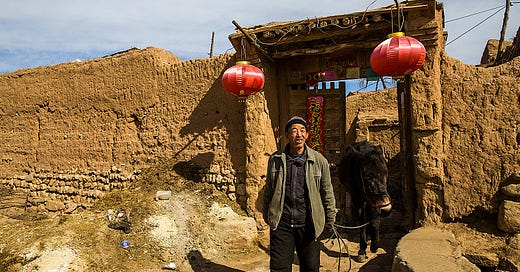


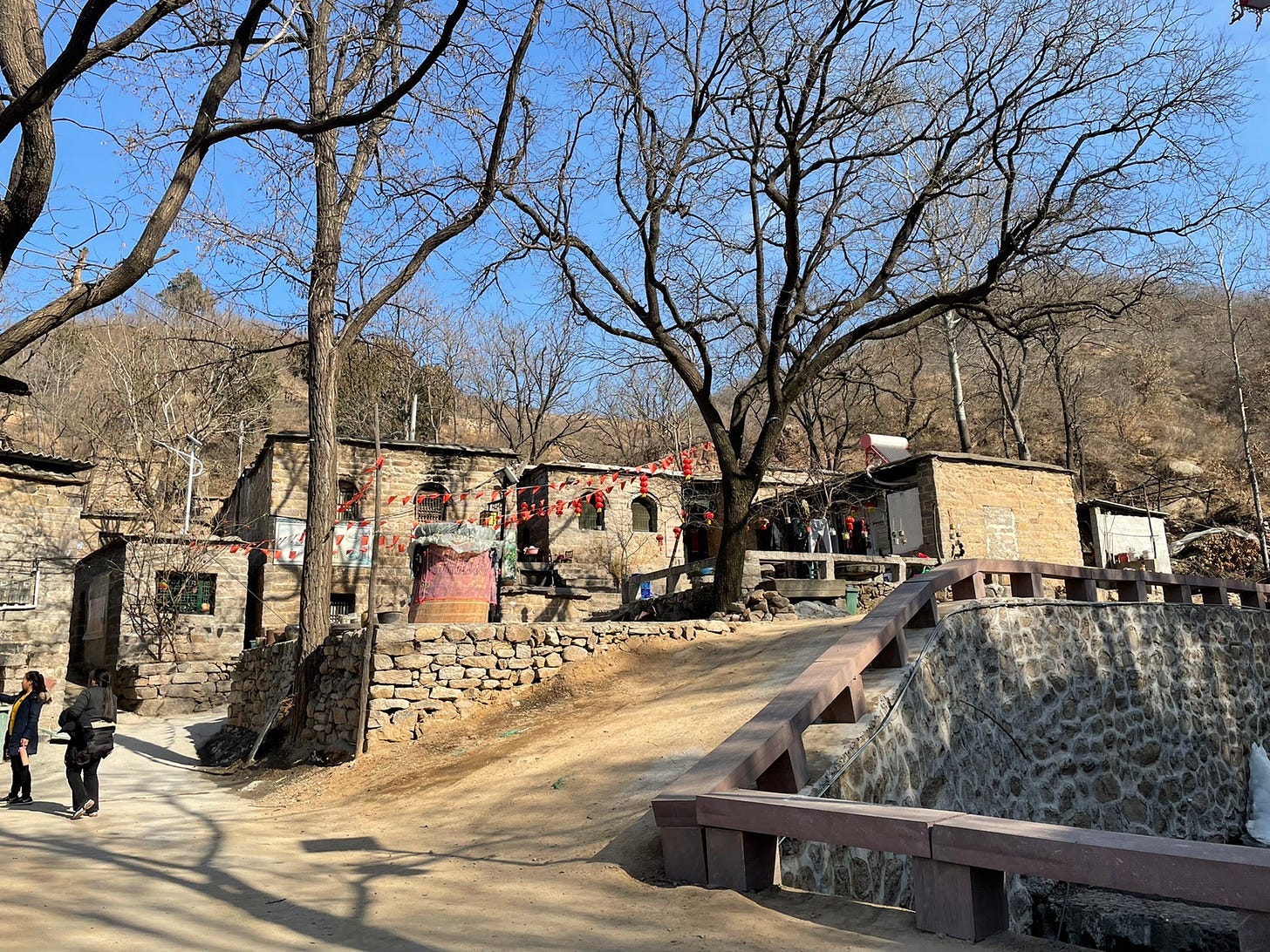
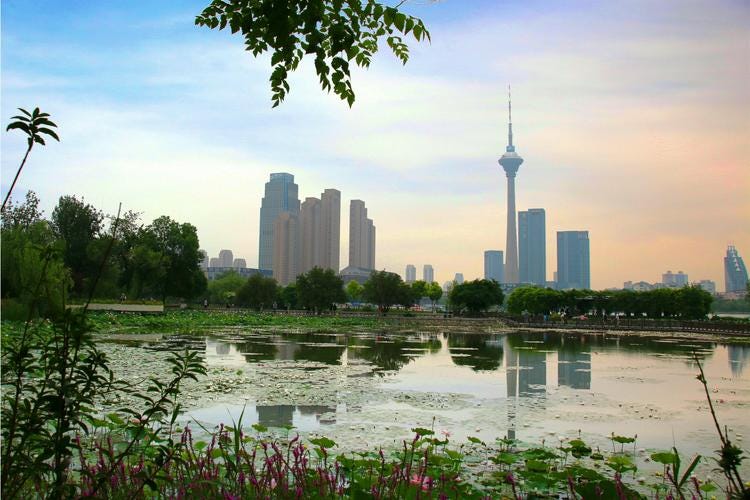
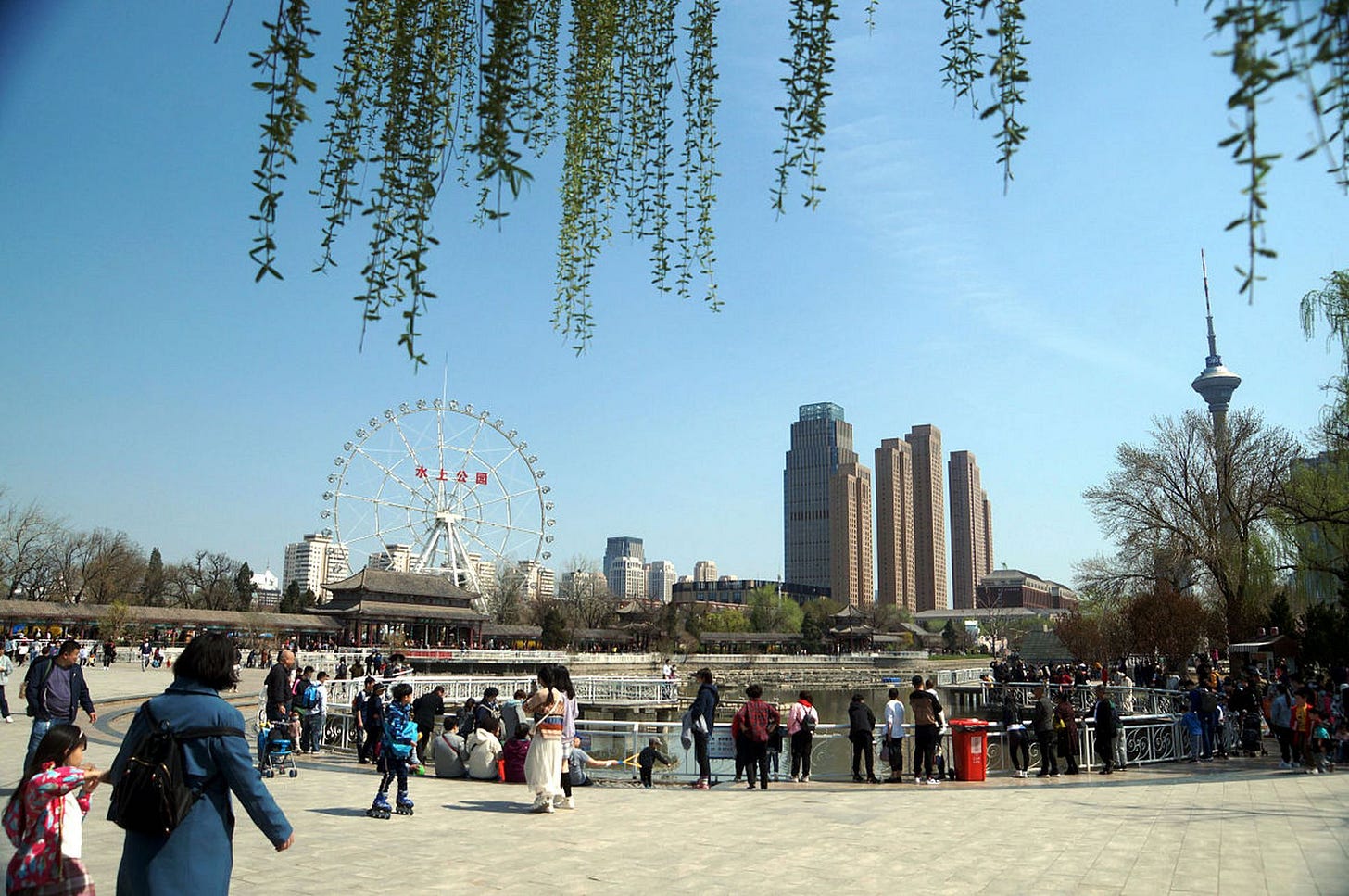
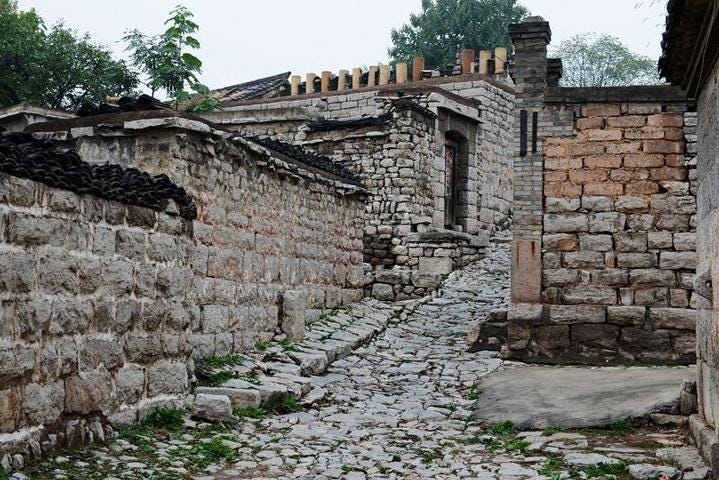

Love the heart in this one. Reminds me of the book by The Last Days of Old Beijing Meyer. Only suggestion is to add some captions to the photos so easier to identity.
Hi Nathan, you don't know me but I share much of your views and experiences as in this post. I come from a big city - Milan - I lived in a much bigger city for 11 year - Beijing - and since late 2022 I'm back in Italy, but in the countryside, which is something I had never experienced before (Tuscany).
Why? Surely a bit by chance (my wife found a job in a wine farm), a bit because after having lived in a Chinese megalopolis any other city doesn't seem like a "city" enough: I can't even stand Italian "art cities", Florence is 30 kilometers away from me and I never go there.
So, the point is: I was born and lived as a citizen, now I want to have a totally different experience. Of course, Chianti is not deep China, but the underlying problem, everywhere, is that in urban ideology - or urban prejudice - the countryside is a non-place: an empty, residual space of poverty, where at most there are resources to exploit (extractive capitalism). And instead it is not like that. It is a key territory: that is where food comes from, that is where the climate issue is largely played out. I believe that Chinese history over the last 40 years has been imbued with this urban prejudice: the countryside is seen essentially as a place of poverty (anti-poverty struggle that allegedly ended up in 2020 was basically a "rise the countryside" campaign). But, as you say, we must not judge. In the Chinese farmers I have known, I see in part my grandparents who pushed for their children to find fortune in the city. My parents were the first generation to move to the city: born in the countryside, died in the city. And now, their son is returning to the countryside, but with a different approach, with more awareness. In China, there are already similar phenomena: young people who return to the countryside. A minority, of course, because the general trend, all over the world, is urbanization. However, I find some reason to hope that in the future the relationship between city and countryside can find a balance.